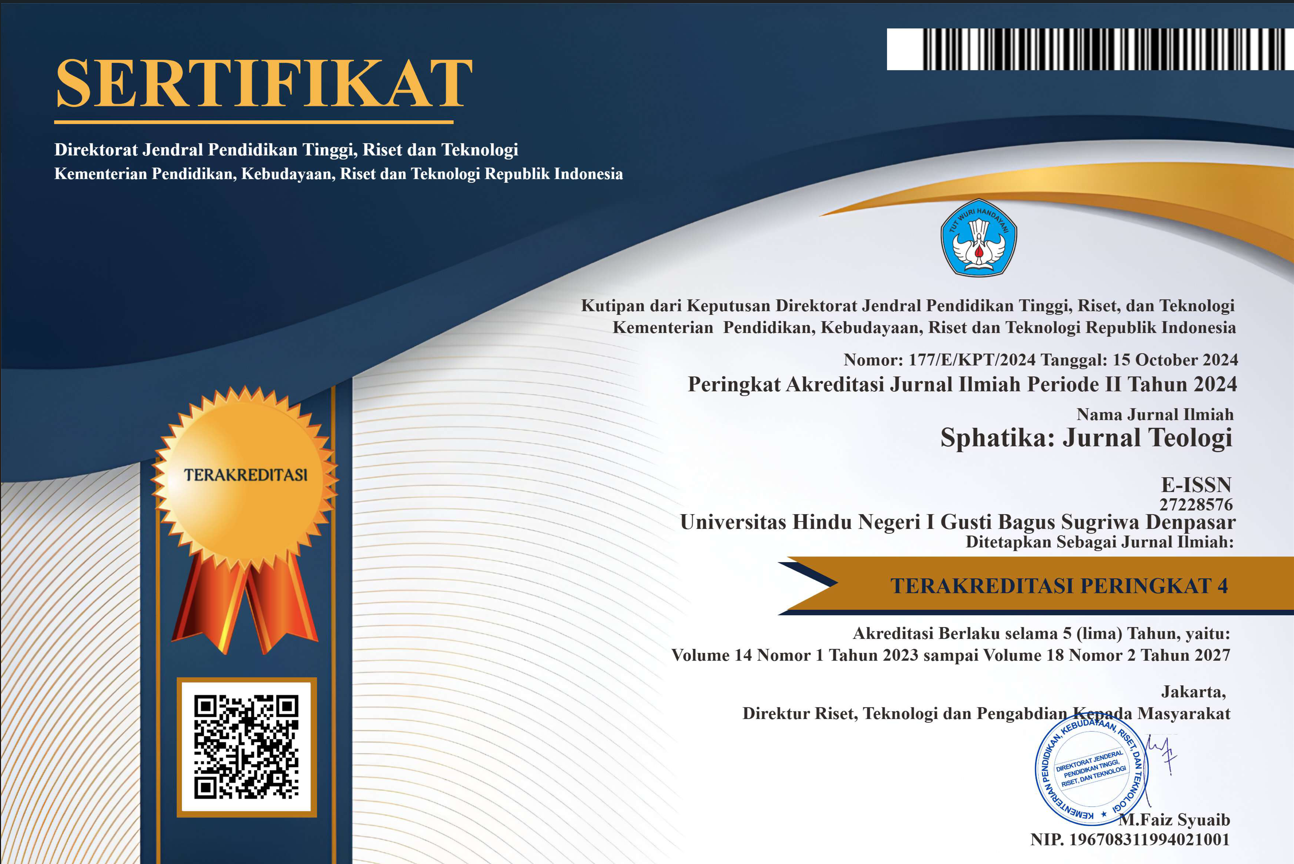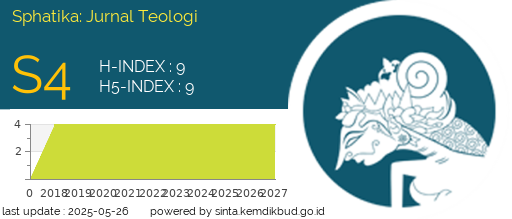Optimalisasi Keharmonisan Masyarakat Plural Melalui Ajaran Teologi Kerukunan
DOI:
https://doi.org/10.25078/sphatika.v12i2.1127Keywords:
harmony; harmony theology; religious pluralismAbstract
Harmony in religious life is an important phenomenon to note. Considering that several different religions have developed in Indonesia, it is necessary to apply the teachings of harmony theology. Community life under religious pluralism is not always harmonious. In daily life, several cases of disharmony of religious communities often occur. This disharmony occurs because of the lack of tolerance between religious people with one another. To bring back the attitude of tolerance, one needs to explore religious teachings. Thus, there is no longer a nerrow mind against Hindus. The theology of harmony in the Hindu perspective in this case seeks to provide teachings about the unity of mankind. In the Hindu perspective of harmony theology, every human being should respect his fellow human beings because they come from the same source, namely God. Harmony is a religious obligation and obedience to God, it is also a cultural guideline and customs. The synergy between the two has always greatly influenced people's perspectives and attitudes regarding various matters, including efforts to create a harmonious life in the midst of plurality. Keywords: harmony, religious pluralism, harmony theology.
References
Donder, I Ketut dan I Ketut Wisarja. 2009. Teologi Sosial Persoalan Agama dan Kemanusiaan Perspektif Hindu. Yogyakarta: IMPULSE.
Harahap, Syahrin. 2011. Teologi kerukunan. Jakarta: Prenada.
Heriyanti, K. (2020). Moderasi Beragama Melalui Penerapan Teologi Kerukunan. Maha Widya Duta, 4(1), 61-69.
Nasution, Ismail Fahmi Arrauf. 2014. Minoritas dan Politik Perukunan.
Pudja, Gede. 2004. Kitab Suci Bhagawad Gita. Surabaya: Paramita
Pudja, I Gede. 2004. Manawa Dharmasastra. Surabaya: Paramita
Sumbulah dan Nurjanan. 2013. Pluralisme Agama Makna dan Lokalitas Pola Kerukunan Antarumat Beragama. UIN-Maliki Press.
Sura, dkk. 1996. Agama Hindu Sebuah Pengantar. Denpasar: CV Kayumas Agung.
Titib, I Made. 1996. Veda Sabda Suci Pedoman Praktis Kehidupan. Surabaya: Paramita.
Wiana, I Ketut. 2007. Tri Hita Karana Menurut Konsep Hindu. Surabaya: Paramita.
















